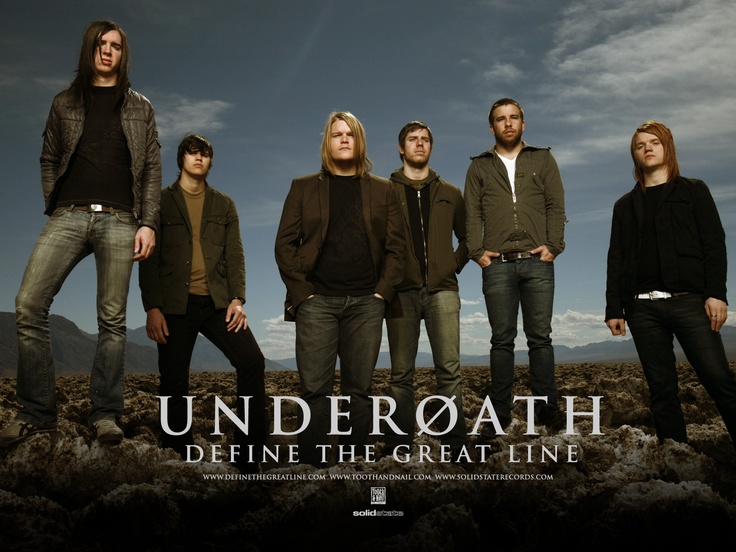All but abandoning the admittedly highly catchy post-hardcore of their breakout album They’re Only Chasing Safety for a more expansive metalcore sound was arguably the best decision Underoath ever made. This is a statement that may still upset some purists and fans of nostalgia, but the major shifts in sound the band underwent prior to their initial breakup were inarguably important to Underoath’s actual growth. Thus is the importance and near-legendary status of 2006’s Define The Great Line that it’s cited as a key influence on both subsequent band formations and even current bands carrying their torch in different ways (Silent Planet, here’s looking at you). It’s time to revisit this album, so buckle up.
One of the greatest traits of this album is growth. Upon hearing opening track (and career highlight) “In Regards To Myself”, you can immediately feel a chilling sea change in who Underoath were, and who they were to become. Vocalist Spencer Chamberlain roars like never before, with a measured and ferocious growl that still stuns even today. In fact, everyone is on point through the album’s 11 songs, and there are no shortage of album standouts.
Urgency is also the name of the game with this record, and that trait is on display all over the place. Take a song like “Returning Empty Handed”, for instance. A fairly typical Underoath song, but its somewhat hidden post-metal influences (think Cult Of Luna, Isis) are very exciting, especially for a genre of music that likes to cannibalize itself. This genre melding is put to great effect on album closer “To Whom It May Concern”, with its slow build-up and soul-crushing, sludgy, yet satisfying climax. Moments like the ones on “You’re Ever So Inviting”, where vocalist/drummer Aaron Gillespie and Spencer Chamberlain trade off with their dueling vocals, surely influenced a legion of today’s metalcore and post-hardcore bands with more than one vocalist. There’s also the aspect of the album’s cinematic and ambient flair, and when you consider also the album’s varying tempo changes (in other words, it’s not the kind of metalcore that goes full-throttle the whole way through), it’s something that many modern bands picked up on quickly – especially Silent Planet, Invent Animate, Dayseeker, and Northlane.
The best quality Define The Great Line contains in spades is honesty. The album explores different emotions and feelings in ways that are sometimes uncomfortably honest, like drug and alcohol addiction, depression, and questioning of faith. You know, things and ideals that the majority of humans struggle with on a regular basis. Emotions and feelings that are often swept under the rug, especially in the Christian community. Vocalist Spencer Chamberlain even reiterated that in an 2007 interview, saying “We write songs because it makes us happy, being honest musicians. That’s our main goal.”
The album, which reached #2 on the Billboard charts (overall, not the Christian or metal charts), ranks as one of Christian metal’s defining moments. You could even make a case for it being one of the most important Christian albums ever, when technical skill, flair, and influence are all taken into account. But more than that, Define The Great Line is an album that is about honesty and growth. It is a metalcore album that, in the grand scheme of things, is nearly unrivaled. Even with the band’s rebirth, looking back on this iconic record is a must. Define The Great Line is an aural snapshot of where Underoath has been, where they were, and where they’re headed next.





